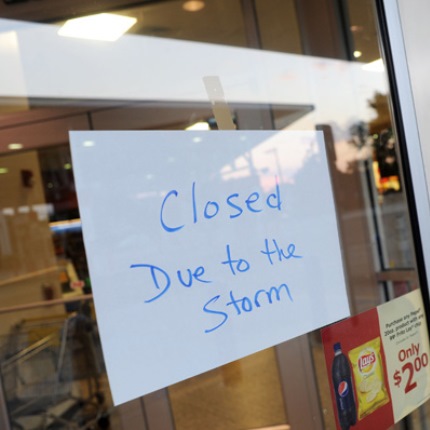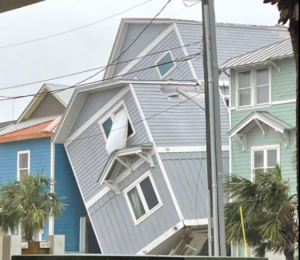 More than 30 percent of businesses that close because of a natural disaster never reopen, according to the Insurance Information Institute. The institute recommends the following list of precautions to keep your business from becoming a casualty of disaster:
More than 30 percent of businesses that close because of a natural disaster never reopen, according to the Insurance Information Institute. The institute recommends the following list of precautions to keep your business from becoming a casualty of disaster:
- Develop an emergency response plan and provide train your employees to ensure they can execute the plan. Put each step of the plan in writing, assign specific responsibilities for executing the plan to specific employees, so they know what to do to limit injuries and property damage. Practice executing the plan by conducting scheduled drills.
- Maintain a list of phone numbers and addresses to contact key people after a disaster. Make sure you have contact information for employees, major customers, suppliers, your banker, your insurance agent and insurance claims representatives, and state and local emergency management agencies.
- Develop a strategy for communicating with your customers after a disaster to protect against the possibility that they will take their business to competitors.
- Arrange for a backup source of power, such as a generator, in the event of an electrical blackout, and a backup communications system should regular telephone and email service become unavailable.
- Duplicate records, and securely store duplicate computer files in an off-site location such as the mainframe of a “cloud” company that provides remote data storage services. Keep hard copies of important documents in a safe deposit box.
- Prepare contingency plans for the possibility that employees will be unable to work on the premises of your business after a disaster due to loss of power or damage to the premises.
- Assess the resilience of your business facilities and take steps to limit exposure to damage due to disaster.
- Plan for a possible loss of suppliers and customers. Even if a disaster doesn’t physically damage your business, big losses could ensue if your suppliers are unable to provide regular service and customers are unable to place or receive orders.
- Estimate the financial impact if a disaster physically damages your business and shuts down your operations for a day, several days, a week or longer. If you can’t afford to suspend operations, even for one day, identify an alternative location where the business temporarily could continue operating.
- Getting prompt damage-repair service from construction contractors can be difficult in the wake of a natural disaster, so try to get an advance agreement from at least one contractor to give your post-disaster needs top priority.
Source: Miami Herald




